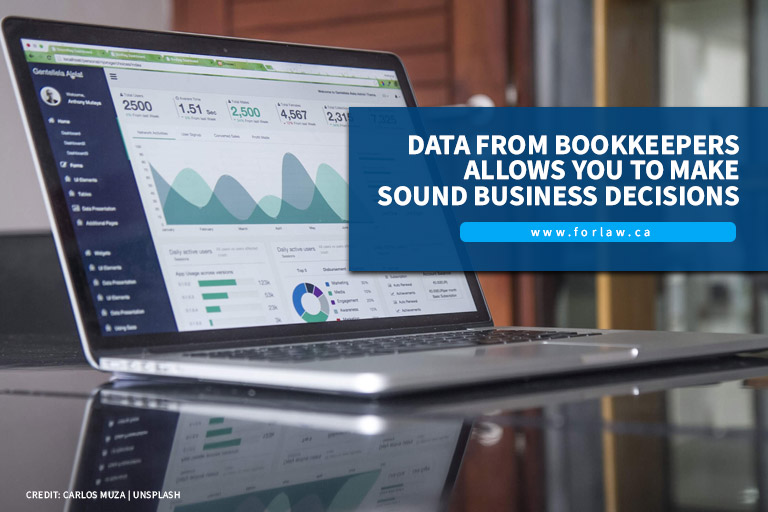Accounting and bookkeeping for lawyers may be a hassle, especially for those who would rather be practicing law than calculating numbers. As a result, bookkeeping may often be delegated to an assistant or someone with little or no financial training. This results in financial records that are inaccurate and rife with errors.
The great majority of lawyers claim that they waste hours on non-billable administrative tasks. Lawyers who try to keep control or save money by handling law firm accounting themselves may find the situation even worse, with bookkeeping responsibilities being pushed to nights and weekends if they are completed at all.
Why Legal Bookkeeping is Necessary
Effective legal accounting is crucial to the success of your firm. Law firms need a skilled professional bookkeeper to manage a variety of expenses, hold money in trust, and ensure that all transactions are handled ethically and lawfully. Sound bookkeeping for lawyers is required to ensure that your firm’s financial accounts are accurate, thorough, and up-to-date. Here’s why:
- Compliance
Every law firm is responsible for adhering to ethical guidelines. Although each jurisdiction’s guidelines vary, there are some accounting fundamentals that lawyers must adhere to. Violations of compliance requirements, like misusing customer cash, whether deliberate or unintentional, can have substantial consequences.
Breaking legal accounting laws can result in:
- Penalties
- Suspension of Licence
- Disbarment
- Business Growth

With legal bookkeeping, you can collect and evaluate data and make data-driven decisions based on how much money enters and exits your firm. You can also utilize this data to figure out which aspects of your practice are the most and least successful, so you can use your resources more wisely in the future.
Reputation is everything in the law. If you constantly commit accounting errors, you will appear unprofessional. This might result in the loss of business, referrals, and possibilities for growth. Furthermore, you risk jeopardizing your company’s compliance standards or losing money.
- Efficiency
Legal bookkeeping is an investment that will pay off in the long run for your organization. First and foremost, it will enable you to focus on things you ought to do while being confident that a greater number of accounting tasks will be accomplished properly and on time.
Additionally, if you use legal bookkeeping software, your current accounting team will be able to boost their productivity. Software is meant for multitasking. You will be able to complete the tasks not only quickly, but also correctly. When the danger of errors is minimized, you won’t need to devote additional resources to verify whether the data is valid. It can be time-consuming to guarantee that your accounting data is accurate especially if your company has a large number of clients. You will be able to save time on such matters if you have a trusted legal bookkeeper that uses legal accounting software.
- Performance Monitoring
Bookkeeping services for law firms allow you to track billable hours, your progress over time, and expenses on a client-by-client or practice-area basis. You’ll be able to make better judgments about where to invest and where you might need to make changes if you have a better understanding of the profitability of each section of your organization. You can have quick access to your company’s financial and operational situation with a legal bookkeeping service.
- Revenue and Cash Flow Management

Having real-time information about your company’s financial situation has one major advantage: better cash flow control. Cash flow is vital because it allows you to budget for both minor and large expenses, ensuring that you have enough finances to meet your ongoing business needs. Your firm can better estimate partner pay distributions if you manage your cash flow properly. There will be no more significant unexpected bills, no more missed collections, and the partners’ remuneration will be more consistent.
How Does Accounting Help Lawyers
Bookkeepers can help you manage partners. It also allows principal lawyers to gain a better understanding of their business, which has direct implications for cash flow, lawyer compensation, staff efficiency, client profitability, and compliance with provincial law society by-laws. With the right tools, legal bookkeeping can provide the following services:
- Fees and Expenses Tracking

Bookkeepers and legal accounting software help you conveniently record fees and expenses. A good system can also keep track of the many types of expenses you have for tax purposes, so you can accurately report expenses and fees on your financial statements. This is especially important if you are dealing with several cases. Your law company billing and accounting process will run more efficiently than ever before if you use case management software that incorporates features like calendaring software for law firms and legal tasks and workflows.
- Invoicing
Invoicing a law practice is a highly time-consuming and tiresome task. Lawyers often have to go through each client matter before the staff can consolidate all records to generate invoices. The entire process can take an excessive amount of your time and be rife with inaccuracies. With the right legal bookkeepers and software, your law firm will be able to create custom and thorough invoices for your clients quickly and efficiently.
- Reporting

Bookkeeping plays an important role in developing your firm’s ability to routinely assess its financial health and find areas for potential improvements. Additionally, lawyers require reports on the following subjects:
- client profitability
- originating attorney reports and in some instances
- partner compensations,
- timekeeper
Working with a PCLaw bookkeeper, for instance, enables you to accomplish a variety of reports on the firm’s billing methods, realization, accounts receivable, and costs.
- Trust Accounting
Clients rely on their lawyers to hold and keep their money in trust, hence trust accounting is a crucial job for lawyers. However, because trust accounting comes with a lot of responsibilities, it’s critical to keep correct records and follow state regulations. Failure to follow trust account requirements might result in major issues with your customers as well as the provincial bar.
Bookkeepers are knowledgeable of these rules. In addition, legal accounting software also allows you to collect, track, and reconcile all of the money going into and out of your client trust accounts. They serve as safeguards to ensure that funds are well-managed.

Law firms have unique accounting requirements, and you’ll need the right partner to accomplish them.
Achieve financial peace of mind! If you need legal bookkeeping in Toronto, Accounting For Law is here to help. With over 20 years of experience, we ensure your firm’s financial stability in compliance with provincial law society by-laws. Contact us at (905) 492-5522.








